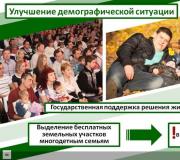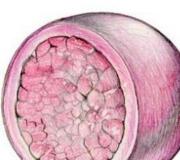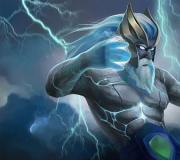A bus во множественном числе. Множественное число существительных
Упражнение 1
Поставьте предложенные существительные в форму множественного числа.
Computer (компьютер), lion (лев), glove (перчатка), lady (дама, леди), bus (автобус), knife (нож), potato (картошина), desk (парта), boat (лодка), child (ребенок), boy (мальчик), sheep (овца), leg (часть ноги от стопы до бедра), watch (часы), tooth (зуб), flower (цветок), play (игра), umbrella (зонт), foot (ступня), phone (телефон), person (человек), armchair (кресло), tomato (помидор), theatre (театр), wolf (волк), ox (бык), woman (женщина), subway (подземка, метро), deer (олень), elephant (слон), monkey (обезьяна), fox (лиса), family (семья), goose (гусь), butterfly (бабочка), tram (трамвай), daddy (дядя), man (мужчина).
Ответы:
Computers, lions, gloves, ladies, buses, knives, potatoes, desks, boats, children, boys, sheep, legs, watches, teeth, flowers, plays, umbrellas, feet, phones, people, armchairs, tomatoes, theatres, wolves, oxen, women, subways, deer, elephants, monkeys, foxes, families, geese, butterflies, trams, daddies, men.
Упражнение 2
Вставьте пропущенные сказуемые и указательные местоимения в соответствующем числе.
1. Marta bought … red trousers and … blue jeans in Germany. – Эти красные брюки и те голубые джинсы Марта купила в Германии.
2. Her scissors … new and very sharp. – Ее ножницы новые и очень острые.
3. Mathematics is a very important and interesting subject. – Математика – это очень важный и интересный предмет.
4. John`s binoculars … the best. – Бинокль Джона самый лучший.
5. The people in the aula … our guests. – Люди в актовом зале – это наши гости.
6. Mary chose … brown tights and new white jeans. – Мэри выбрала те коричневые колготки и новые белые джинсы.
7. … stockings hang together with … shorts. – Эти чулки (носки, гетры) подходят к тем шортам.
8. Our Granny`s spectacles (= glasses) … on the kitchen-table. – Очки нашей бабушки лежат на кухонном столе.
9. The police … looking for a fair-haired European with a black Rottweiler. – Полиция ищет (= полицейские ищут) светловолосого человека европейской внешности с черным ротвейлером.
10. Draughts … his favorite game and billiards … hers. – Шашки – его любимая игра, а биллиард – ее (любимая игра).
Ответы:
1. These, those. 2. Are. 3. Is. 4. Are. 5. Are. 6. Those. 7. These, those. 8. Are. 9. Are. 10. Are, are.
Упражнение 3
Измените единственное число в следующих предложениях на множественное.
1. That was a cowboy. – Это был ковбой.
2. Mary found a flight to Delhi. – Мэри нашла рейс в Дели.
3. Robert made this bookshelf himself. – Роберт сам сделал эту книжную полку.
4. The window and the door are closed. – Окно и дверь заперты (закрыты).
5. There is a mouse in the kitchen. – В кухне мышь.
6. It is a white goose. – Это белый гусь.
7. That was not a sheep. That was a donkey. – Это была не овца. Это был осел.
8. It is not an interesting story. – Это неинтересная история.
9. Is that Eric`s knife? – Это нож Эрика?
10. There was a beautiful bright star in the sky. – В небе была красивая яркая звезда.
11. It was not the selected song. – Это была не выбранная песня.
12. Is that a studious pupil? – Это прилежный ученик?
Ответы:
1. Those were cowboys.
2. Mary found flights to Delhi.
3. Robert made these bookshelves himself.
4. The windows and the doors are closed.
5. There are mice in the kitchen.
6. There are geese.
7. Those were not sheep. Those were donkeys.
8. These are not interesting stories.
9. Are those Eric`s knives?
10. There were beautiful bright stars in the sky.
11. There were not selected songs.
12. Are those studious pupils?
Упражнение 4
Переделайте словосочетания, поставив существительные в форму множественного числа.
A fallen leave (опавший лист), the stupid student (глупый студент), the German guest (немецкий гость), a difficult subject (трудный предмет), the broken window (разбитое окно), the good marks (хорошие отметки), an interesting example (интересный пример), a modern plane (современный самолет), the old coin (старая монета), a beautiful glass (красивый стакан), the driving license (водительское удостоверение), a fresh tomato (свежий помидор), a white ceiling (белый потолок), the biggest river (самая большая река), an interesting proposal (интересное предложение), a standing person (стоящий человек), the important addition (важное дополнение), a tasty supper (вкусный ужин), the endless day (бесконечный день), the recorded talk (записанный разговор), an angry goose (злой гусь), a bitter drink (горький напиток), the new teapot (новый заварочный чайник).
Ответы :
Fallen leaves, the stupid students, the German guests, difficult subjects, the broken windows, the good marks, interesting examples, modern planes, the old coins, beautiful glasses, the driving licenses, fresh tomatoes, white ceilings, the biggest rivers, interesting proposals, standing people, the important additions, tasty suppers, the endless days, the recorded talks, angry geese, bitter drinks, the new teapots.
Здесь представлены упражнения по теме «множественное число существительных в английском языке» с ответами. Правило вы можете посмотреть в статье «Множественное число существительных в английском».
- Write in plurals (поставьте следующие существительные во множественное число)
- diary –
- sheep –
- book –
- cherry –
- fish –
- baby –
- match –
- bus –
- watch –
- What are these irregular plurals (напишите во множественном числе существительные исключения)
- woman –
- mouse –
- tooth –
- foot –
- man –
- child –
- goose –
- Write in singular (поставьте следующие существительные в единственное число)
- glasses –
- potatoes –
- forget-me-nots –
- crises –
- stimuli –
- foxes –
- brushes –
- brothers-in-law –
- phenomena –
- formulae –
- data —
- Find ten plural words (найдите 10 слов во множественном числе)
| J | O | P | F | T | U | Y | K | L | Q |
| R | G | E | G | O | I | P | F | E | D |
| E | F | N | F | G | H | J | I | P | W |
| F | A | C | E | S | M | N | S | O | O |
| A | Y | I | A | D | C | V | H | F | M |
| M | T | L | F | E | E | T | Q | L | E |
| I | P | S | T | I | M | U | L | I | N |
| L | O | B | O | O | E | I | A | E | I |
| I | M | N | Y | L | N | L | S | S | U |
| E | B | L | M | P | K | R | D | Z | P |
| S | G | I | R | L | S | W | X | B | M |
- Find five plural words in the text (найдите 5 существительных во множественном числе в тексте)
Hi! My name’s Bob. I’m 16 years old and I live in London. I’m tall and slim. I’ve got blond hair and blue eyes. These are my best friends, Tony and Simon.
Tony is 17 years old and he is a football player. He always watches football matches on TV.
Ниже даны ответы:
- Write in plurals
- diary – diaries
- sheep – sheep
- book – books
- cherry – cherries
- fish – fish
- baby – babies
- key — keys
- match – matches
- bus – buses
- watch – watches
- What are these irregular plurals
- woman – women
- mouse – mice
- tooth – teeth
- foot – feet
- man – men
- child – children
- goose – geese
- ox – oxen
- Write in singular
- glasses – glass
- potatoes – potato
- forget-me-nots – forget-me-not
- crises – crisis
- stimuli – stimulus
- foxes – fox
- brushes – brush
- brothers-in-law – brother-in-law
- phenomena – phenomenon
- formulae – formula
- data — datum
- Find ten plural words
| J | O | P | F | T | U | Y | K | L | Q |
| R | G | E | G | O | I | P | F | E | D |
| E | F | N | F | G | H | J | I | P | W |
| F | A | C | E | S | M | N | S | O | O |
| A | Y | I | A | D | C | V | H | F | M |
| M | T | L | F | E | E | T | Q | L | E |
| I | P | S | T | I | M | U | L | I | N |
| L | O | B | O | O | E | I | A | E | I |
| I | M | N | Y | L | N | L | S | S | U |
| E | B | L | M | P | K | R | D | Z | P |
| S | G | I | R | L | S | W | X | B | M |
- Find five plural words in the text
Hi! My name’s Bob. I’m 16 years old and I live in London. I’m tall and slim. I’ve got blond hair and blue eyes.
These are my best friends, Tony and Simon. Tony is 17 years old and he is a football player. He always watches football matches on TV.
Simon is 16 years old. He’s short and plump, but very funny. He likes listening to music and play computer games.
Очень часто студенты даже среднего уровня владения английским языком путают указательные местоимения this, that, these, those, что есть Особенно, когда нужно перевести предложения с этими местоимениями с родного языка на английский. Эти четыре слова можно классифицировать по 2 критериям: расстояние и число. Сначала о расстоянии.
В представленной ниже таблице Вы видите, что слова this и these употребляются, когда речь идет о людях или предметах, расположенных близко к говорящему. Например, this magazine (этот журнал), these magazines (эти журналы). В то время как that и those — о людях или предметах, расположенных вдали, вдалеке от говорящего. Например, that picture (та картина), those pictures (те картины). Теперь о числе (sg. — the singular — единственное число, pl. — plural — множественное число). Местоимения this и that употребляются с существительными в единственном числе — this pear (эта груша), that pear (та груша), а these и those — во множественном — these pears (эти груши), those pears (те груши).
Особое внимание нужно обратить на произношение указательных местоимений this и these. Эти два звука очень похожи. Сравните их обязательно, прослушав прям в блоге, а теперь повторите несколько раз, чтобы почувствовать разницу между [ðιs] («ы») и [ði:z] (как «и» в слове «иглы»).
Помните, что после местоимений these и those необходимо ставить существительное во множественное число, добавив окончание -s или -es (these shop s , those benches ).
| HERE | THERE | |
|---|---|---|
| sg. | this (этот) | that (тот) |
| pl. | these (эти) | those (те) |
Пора проверить, насколько Вам понятно мое объяснение:) Переведите на английский язык:
- этот автомобиль
- эти дома
- те овощи
- эти города
- тот бутерброд
- this car
- these houses
- those vegetables
- these cities
- that sandwich
Думаю, все отлично справились с этим несложным заданием. Тогда, как бы Вы сказали на английском такое предложение (заметьте, НЕ словосочетание): «Это отель, а то — ресторан»? Правильно, после слов this и that употребляем глагол to be в единственном числе: «This is a hotel, and that is a restaurant.» Скажите про отель и ресторан во множественном числе. Должно быть так: «These are hotels, and those are reataurants.» — глагол to be во множественном числе (Это отели, а то рестораны.)
| HERE | THERE | |
|---|---|---|
| sg. | This is | That is |
| pl. | These are | Those are |
Закрепляем:
- То — газеты, а это — словари.
- Это — моя книга, а то — твоя ручка.
- То — наши конверты, а это его письмо.
- Это — ее белая сумка, а то — ее пальто.
- Это — ученик, а это — учителя.
- Those are newspapers, and these are dictionaries.
- This is my book, and that is your pen.
- Those are our envelopes, and this is his letter.
- This is her white bag, and that is her coat.
- This is a pupil, and these are teachers.
Вопросы с this, that, these, those
И, последний важный момент на тему this, that, these, those — вопросы. Прежде, чем спросить на английском «Что это?», определите, единственное или множественное существительное будет в ответе. Поскольку Ваш вопрос и ответ должны совпадать по числу. Например, если на тарелке лежит несколько яблок, то вопрос «Что это?» будет звучать: «What are these? », а не «What’s this?», потому что ответом будет: «These are apples.»
A dog, a ball, a desk, a horse, a fact, a nose, a lip, a mother, a father, a brother, a pen, a pencil,a flower, a kid, a pupil, a lion, an elephant, an apple.
Answers: dogs, desks, horses, facts, noses, lips, mothers, fathers, brothers, pens, pencils, flowers, kids, pupils, lions, elephants, apples.
NB! Неопределенные артикли a/an используются только в единственном числе!
Exercise 2. Образуйте множественное число имен существительных.
A class, a box, a bus, a match, a bush, a wish, a loss, a tomato, a princess, a boss, an ostrich, a brush, a witch, a fox, a dish, a hero, an address, a glass.
Answers: classes, boxes, buses, matches, bushes, wishes, losses, tomatoes, princesses, bosses, ostriches, brushes, withes, foxes, dishes, heroes, addresses, glasses.

Exercise 3. Образуйте множественное число имен существительных.
A cry, a lady, a baby, a puppy, a strawberry, a cherry, a reply, a party, a spy, the sky, a city, a country, a lorry, a doggy, a poppy, a story, an enemy, a family.
Answers: cries, ladies, babies, puppies, strawberries, cherries, replies, parties, spies, skies, cities, coutries, lorries, doggies, poppies, stories, enemies, families.
Exercise 4. Образуйте множественное число имен существительных.
A loaf, a wife, a wolf, a calf, a safe, a shelf, an elf, a roof, a scarf, a thief.
Answers: loaves, wolves, calves, halves, safes, shelves, elves, roofs, scarves (scarfs), thieves.

Exercise 5. Образуйте множественное число имен существительных.
A baby, a plant, a lemon, a peach, a banana, a brush, a star, a mountain, a tree, a shilling, a king, the waiter, the queen, a man, a woman, the woman, an eye, a shelf, a box, the city, a boy, a goose, the watch, a mouse, a dress, a toy, the sheep, a tooth, a child, the ox, a deer, the life, a tomato, a secretary, a crowd, the airport, a theatre, the tornado, a shop, the tragedy.
Answers: babies, plants, lemons, peaches, bananas, brushes, stars, mountains, trees, shillings, kings, the waiters, the queens, men, the men, women, the women, eyes, shelves, boxes, the cities, boys, geese, the watches, mice, dresses, toys, the sheep, teeth, children, the oxen, deer, the lives, tomatoes, secretaries, crowds, airports, theatres, tornadoes, shops, tragedies.
NB! Обратите внимание на артикли: неопределенный артикль a/an во множественном числе не употребляется, определеный артикль the употребляется.
Exercise 5. Образуйте множественное число имен существительных и запишите их формы в правильную колонку.
A dolphin, a fly, a dress, a shoe, a diary, a cake, a strawberry, a sandwich, a toy, a fox, a garden, a ray, a piano, an enemy, a branch, a wish, a coin, an ability.
| -es | ||
Answers: -s:
dolphins, shoes, cakes, toys, gardens, rays, pianos, coins. -es:
dresses, sandwiches, foxes, branches, wishes. -ies:
flies, diaries, strawberries, enemies, abilities.
Exercise 6. Прочитайте рассказ. Выпишите имена существительные во множественном числе.
Little Bunny

I am a little bunny. My name is Usagi. I live in a wood. My house is in the hollow tree.
In spring, I like to pick dandalions. These flowers are very nice, sweet and tasty. In summer I listen to the birds and insects. In autumn I watch bright leaves on the trees. In winter I dream about spring.
Answers: dandalions, flowers, birds, insects, leaves, trees.
Exercise 7. Раскройте скобки, употребляя имена существительные во множественном числе.

- I have two little (a sister). They are (a twin). They have a lot of (a pencil) and (an album). They like to draw (a house, a tree, a puppy, a kitten, a duck, a chiken and a doll). My sisters cannot draw (a car, a bus, a ship and an elephant). I help them.
- My (a grandmother, a grandfather, an aunt, an uncle and a cousin) live in a village. They have a nice farm. There are a lot of (a cow, a calf, a horse, a pig and a piglet) there. I like to play with (a rabbit). They are very funny.
- My best friend has three elder (a brother). They are (a student). They have a lot of (an interest). They like to play computer (a game), to see horror (a film), and to collect (a stamp) and toy (a car). I think their (a hobby) are very interesting.
Answers: 1. Sisters, twins, pencils, albums, houses, trees, puppies, kittens, ducks, chickens, dolls, cars, buses, trams, ships, elephants.
2. Grandmothers, grandfathers, aunts, uncles, cousins, cows, calves, horses, pigs, piglets, rabbits.
3. Brothers, students, interests, games, films, stamps, cars, hobbies.
Exercise 8. Напишите имена существительные в единственном числе.
Children, shelves, feet, desks, classes, buses, men, pencils, women, babies, tomatoes, potatoes, dresses, mice, teeth, sheep, puppies, fish, foxes, rabbits, boxes, geese, deer, bosses, salmon, animals.
Answers: chils, shelf, foot, calss, bus, man, pencil, woman, baby, tomato, potato, dress, mouse, tooth, sheep, puppy, fish, fox, rabbit, box, goose, deer, boss, salmon, animal.
Exercise 9. Образуйте множественное число существительных.

A post office, a postman, a postwoman, a kindergarten, a woodpecker, a dinner party, a gadfly, a dragonfly, a toothbrush, a workwoman, a father-in-law, a girfriend.
Answers: post offices, postmen, postwomen, kindergartens, woodpeckers, dinner parties, gadflies, dragonflies, toothbrushes, workwomen, fathers-in-law, girlfriends.
Exercise 10. Напишите имена существительные в единственном числе.
Sportsmen, sportswomen, gooseberries, strawberries, wood spirits, wolf-dogs, pencil boxes, classmates, sisters-in-law, brothers-in-law, blackboards.
Answers: sportsman, sportswoman, gooseberry, strawberry, wood spirit, wolf-dog, pencil box, classmate, sister-in-law, brother-in-law, blackboard.
WELL DONE!

Литература:
- Павличенко О.М. Английский язык. Грамматический практикум. II уровень. - 2-е изд., испр. и доп. - X.: Ранок, 2012. - 304 с.
- Голицынский Ю.Б. Грамматика: Сборник упражнений. - 5-е изд., - СПб: КАРО, 2005. - 544 с. - (Английский язык для школьников).
 Образование множественного числа существительных в английском языке
Образование множественного числа существительных в английском языке
 Английские женские имена
Английские женские имена





